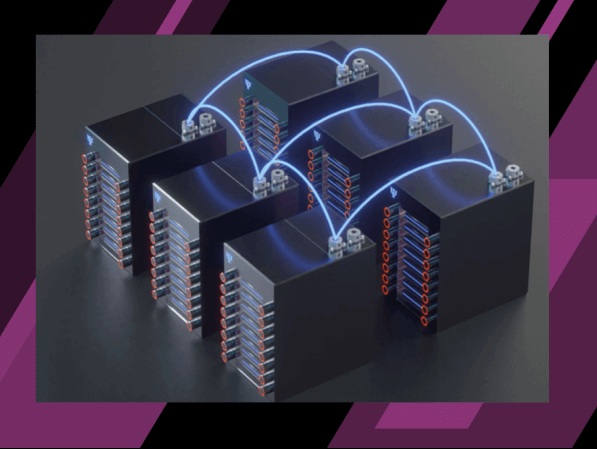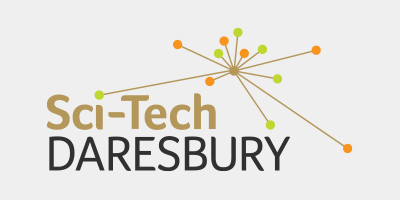March 6, 2023
PsiQuantum opens first UK-based research facility to develop advanced cryogenic systems for large-scale quantum computing
Collaboration to support PsiQuantum’s mission to build world’s first useful quantum computer.

The collaboration will support PsiQuantum’s mission to build world’s first useful quantum computer.
Silicon Valley start-up PsiQuantum is to open its first advanced R&D facility outside of the US at the Science and Technology Facilities Council’s (STFC) Daresbury Laboratory.
The collaboration will enable PsiQuantum to develop the advanced cryogenic systems that are critical in its mission to build the world’s first useful quantum computer.
The announcement follows £9 million investment by UK Government to support PsiQuantum’s collaboration with STFC to overcome the scaling challenges facing ‘fault tolerant’ quantum computing.
Through this new collaboration, PsiQuantum will gain access to:
- one of Europe’s largest cryogenic cooling facilities and its leading experts
- large-scale R&D engineering facilities and workshops
- future synergies with experts at STFC’s Hartree Centre
- future synergies with the UK National Quantum Computing Centre
What is quantum computing?
Quantum computers are anticipated to solve problems that would otherwise be impossible to solve on any supercomputer now or in the future, across industries including cyber security, drug discovery and climate technologies to drive large-scale decarbonisation.
Working in a different way to a classical computer, a quantum computer will be capable of solving certain computational problems that might otherwise require a billion years to calculate on today’s fastest supercomputers
Scientists are already building intermediate-scale quantum computers (also known as Noisy Intermediate Scale Quantum, or NISQ computers), but there are significant technological advances to overcome before they can be useful in practice.
A million qubit challenge
Where classic computers work in ‘bits’, a quantum computer uses quantum bits, known as ‘qubits’.
Scientists can already build quantum computers with a few hundred qubits, but for a quantum computer to be commercially useful, solving real world problems, qubits are needed in the millions.
PsiQuantum’s cubits are based on particles of light, known as photons, which are read by highly sensitive photon detectors. As with all quantum computing efforts, regardless of technology, these photons and photon detectors require cryogenic cooling to reach the scale of a million qubits.
Deep space temperatures
These devices operate at temperatures just a few degrees above absolute zero, equivalent to the temperature of deep space (in the region of -270°C).
However, the advantage of PsiQuantum’s photonic approach is that these cooling requirements are far less demanding than that required of alternative technologies.
Although cold, this operating temperature is hundreds of times hotter than the milli-Kelvin temperatures required by many other quantum computing technologies, thus circumventing the unprecedented challenge of developing large-scale milli-Kelvin dilution refrigeration.
Leading cryogenic infrastructure
Located at Sci-Tech Daresbury in the Liverpool City Region, STFC’s Daresbury Laboratory is already home to one of Europe’s largest cryogenic cooling facilities, developing cryomodules for large-scale research facilities across the world.
PsiQuantum will work with STFC’s experts to build an advanced cryogenics centre that will increase its cryogenic capabilities 100-fold.
Here, they will build and test quantum computing modules with the highest cryogenic cooling power to date.
Collaboration with STFC’s Daresbury Laboratory
Chief Technologist and Co-Founder at PsiQuantum, Mark Thompson said:
We are very excited to be setting up a lab in the UK in collaboration with the STFC’s Daresbury Laboratory. The UK has a long history in quantum technologies and a talent pool of exceptional quantum engineers. The STFC team and facilities are absolutely world class, with a deep history of accomplishments in large-scale scientific infrastructure. Access to existing cryogenic infrastructure and expertise accelerates PsiQuantum’s mission to deliver a large-scale quantum computer.
Cutting edge technologies
Head of STFC’s Daresbury Laboratory, Paul Vernon, said:
PsiQuantum is a shining example of how STFC is supporting pioneering businesses in their mission to develop the technologies that have the potential to change the world we live in, to transform industry and change our lives for the better.
I am really excited to welcome PsiQuantum to Daresbury Laboratory, where our cutting edge technologies, facilities and expertise are contributing towards what could be a critical milestone in quantum computing for the world.
Substantial Synergies
PsiQuantum’s collaboration with STFC’s Daresbury Laboratory gives rise to clear synergies within the wider Sci-Tech Daresbury Campus. This includes the Hartree National Centre for Digital Innovation (HNCDI), a collaboration between STFC and IBM.
The HNCDI provides businesses of all sizes access to the latest advanced supercomputing technologies, which are normally only available to academia and large-scale industry.
Here, Hartree Centre experts are already developing and testing next-generation software on quantum computing simulators.
Dynamic campus community
PsiQuantum will also take corporate office space within the wider Sci-Tech Daresbury campus, where more than 150 companies are benefitting from ready access to cutting-edge technologies to develop new products and boost productivity.
The campus has a ‘home-for-life’ ethos, which paves the way for businesses to scale up and move into larger premises within the campus as their needs broaden.
About PsiQuantum
Powered by breakthroughs in silicon photonics and fault-tolerant quantum architecture, PsiQuantum is building the first utility-scale quantum computer to solve some of the world’s most important challenges. PsiQuantum’s approach is based on single-photon qubits, which have significant advantages at the scale required to deliver a fault-tolerant, general-purpose quantum computer. With their photonic chips manufactured in a world-leading semiconductor fab, PsiQuantum is uniquely positioned to deliver quantum capabilities reaching the scale needed to drive advances in climate technologies, pharmaceuticals, healthcare, finance, energy, agriculture, transportation, communications, and beyond.
To learn more, visit www.psiquantum.com. Follow PsiQuantum on LinkedIn
The Science and Technology Facilities Council (STFC), part of UK Research and Innovation (UKRI), funds and supports research in particle and nuclear physics, astronomy, gravitational research and astrophysics, and space science. It operates a network of five national laboratories and supports UK research at a number of international research facilities including CERN, FERMILAB and the ESO telescopes in Chile. STFC is keeping the UK at the forefront of international science and has a broad science portfolio, and working with the academic and industrial communities to share its expertise.



